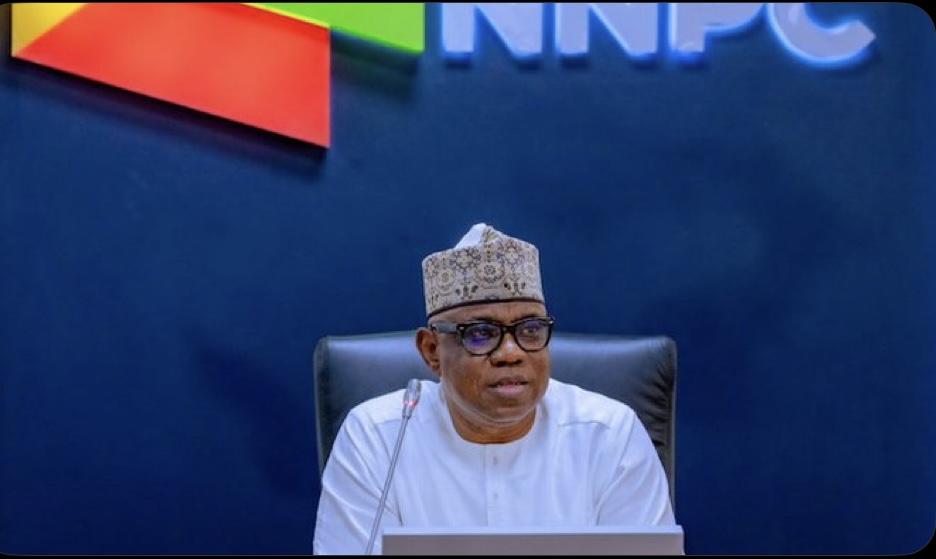Emefiele Earned N350 Million Annually, N75 Million Quarterly Reimbursement, $6 Million Estacode as CBN Governor

A certified court document has disclosed that the former Governor of the Central Bank of Nigeria (CBN), Godwin Emefiele, received an annual remuneration of N350 million during his tenure, supplemented by quarterly reimbursements of N75 million and over $6 million in estacodes for international travel.
These findings emerged from the ruling of the Court of Appeal, Lagos Division, which overturned a prior final forfeiture order on certain properties and assets associated with Emefiele.
The court, in a divided decision delivered on April 9, 2025, determined that the lower court had not thoroughly assessed the entirety of the evidence presented in the initial forfeiture proceedings.
Consequently, it nullified the ruling of the Federal High Court and mandated a new hearing of the case.
“At the risk of redundancy, it should be emphasized that the appellant asserted in paragraph 5 (a), (r), and (v) of his affidavit to show cause why the properties should not be forfeited. Upon his departure from Zenith Bank, his severance allowance amounted to N1,750,000,000, his Zenith Bank shares were valued at N500,000,000, and as central bank governor, his annual compensation was N350,000,000 with quarterly reimbursement of N75,000,000, excluding estacodes paid at $6,285,000; refer to page 531 of the record of appeal,” the court document stated.
The decision arose from a contentious judgment rendered on November 1, 2024, by the Federal High Court in Lagos, which had acceded to the request of the Economic and Financial Crimes Commission (EFCC) to permanently forfeit several high-value properties allegedly owned by Emefiele to the Federal Government.
These properties, according to the EFCC, were suspected to be proceeds of illicit activities. The anti-corruption agency informed the court that the acquisitions were made through proxies, corporate entities, and vehicles that could not be directly linked to Emefiele. In its argument, the EFCC stated that the former CBN Governor had failed to provide evidence of legitimate funds used in the transactions, and none of the companies in whose names the properties were acquired had come forward to contest the forfeiture.
However, in his defense, Emefiele presented documents showing his income history from Zenith Bank, where he previously served as Managing Director, and his decade-long tenure as CBN Governor. Based on this, the court began to question whether the EFCC had adequately demonstrated that the properties were acquired illegally.
Justice Abdulazeez Anka, who delivered the leading judgment, observed that Emefiele’s total declared earnings could indeed have afforded the assets in question. He further noted material conflicts in the affidavit evidence submitted by both parties, which could only be resolved through oral testimonies and cross-examination.
Court orders retrial, criticizes affidavit-only proceedings
The court found that relying solely on affidavit evidence during the initial proceedings at the Federal High Court did not permit adequate scrutiny of the claims and counterclaims.
Justice Anka stated that the issues at hand required a trial involving the calling of witnesses and the cross-examination of the deponents of the affidavits submitted.
He added that the trial court should not have dismissed Emefiele’s motion for a stay of proceedings and failed to entertain his motion challenging the EFCC’s counter-affidavit.
The court therefore ruled that the case be remitted to the Chief Judge of the Federal High Court for reassignment to a different judge for a complete retrial.
Justice Mohammed Mustapha, concurring with the lead judgment, noted that it is not uncommon under Nigerian law for property to be purchased by one individual and held in trust by another. He also acknowledged Emefiele’s Code of Conduct forms from 2014 and 2019, which declared assets jointly owned with his wife.
However, he clarified that most of the disputed properties were acquired between 2020 and 2023, outside the scope of the previously filed asset declarations.
He emphasized that the appropriate form for scrutiny would have been the next mandatory asset declaration—expected in 2023—rather than earlier ones that could not reasonably account for assets acquired in subsequent years.
While the appellate court set aside the forfeiture of certain listed real estate and ordered a retrial, it upheld the final forfeiture of $2,045,000 in cash to the Federal Government.
The court noted that Emefiele had not contested the seizure of the cash sum, and therefore, there was no basis for setting it aside.
However, the justices were not unanimous in their reasoning. In a dissenting opinion, Justice Danlami Senchi disagreed with the majority judgment and maintained that the original forfeiture should stand.
He argued that the EFCC had adequately established that the properties were acquired through companies not legally connected to Emefiele, and since those entities did not challenge the seizure, the forfeiture was valid.
Justice Senchi further contended that there were no conflicts in the affidavit evidence necessitating oral testimony, describing the decision to reopen the case for a full trial as a delay tactic that could undermine the judicial process. He affirmed the judgment of the Federal High Court and dismissed Emefiele’s appeal as lacking merit.
The revelation that former CBN Governor, Godwin Emefiele, earned N350 million annually, with an additional N75 million in quarterly reimbursements and over $6.2 million in estacodes, brings his total annual benefits to nearly N650 million, excluding foreign travel allowances. This disclosure, documented in a Court of Appeal judgment, places his compensation well within the bracket of Nigeria’s highest-paid corporate executives, despite occupying a public office.
According to Nairametrics’ latest CEO pay report, Nigeria’s top 10 highest-paid Chief Executive Officers across all sectors collectively earned N11.6 billion in 2024, up from N7.9 billion in 2023.
This increase in executive compensation reflects the evolving corporate landscape and the growing emphasis on performance-based leadership.
Among these top earners, Dame (Dr.) Adaora Umeoji, who became the first female Group MD/CEO of Zenith Bank Plc in June 2024, earned N874 million in 2024. Her compensation was one of the highest in the country, despite being lower than her predecessor’s due to a mid-year appointment.
Meanwhile, Segun Agbaje, Group CEO of GTCO, earned N471 million in 2024. Under his leadership, GTCO reported N2.1 trillion in revenue and N1.26 trillion in pre-tax profit, making it one of the top-performing companies in the financial sector.









